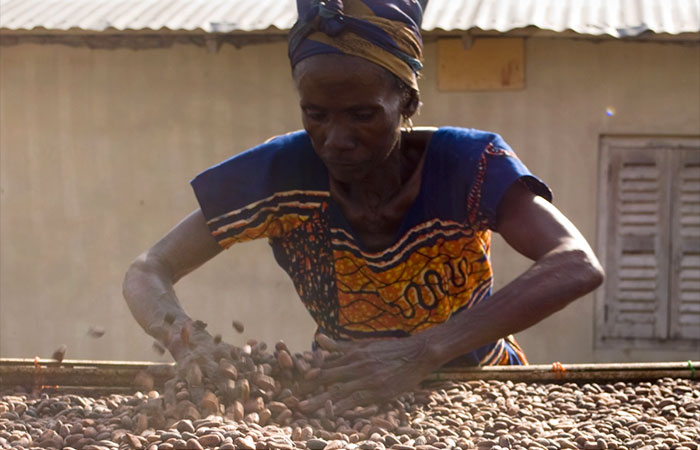Named “V.I.T.A. - Resilience Building for Vulnerable Communities in Côte d’Ivoire”, the project is being implemented in the city of Abidjan, where many migrants live and work. It is designed to develop the capacity of migrant associations and the PCSM-CI to provide support, guidance and assistance to resident migrants and, more broadly, to contribute to advancing and defending their social and economic rights.
The role trade unions are able to play in terms of migration management is ever more apparent, especially when it comes to ensuring that migrant workers have access to decent working conditions. It is not only a matter of preventing and dealing with abuses, but also, and above all, of intervening in their favour through social dialogue processes, collective bargaining and lobbying.
The Ivorian trade unions’ experience of initiatives bringing together the different confederations on crosscutting issues such as human mobility is particularly important in fostering the participation of migrant communities in trade union organisations and giving them a real voice and proper representation in the world of work.
The study entitled “Challenges of the relationship between trade unions, civil society and the most representative associations of migrants living in Côte d’Ivoire” is the second carried out by the PCSM-CI and is part of the effort being deployed by the CGIL and Nexus together with the Mediterranean and Sub-Saharan Migration Trade Union Network (RSMMS) to develop the capacities of trade unions in origin and transit countries to manage the migration and emigration issue.
Building on research already undertaken in 2019, the study provides a better insight into the specificities and needs to be taken on board, by mapping the associations, the services offered (and those that could be offered), the level of knowledge of national legislation on rights to mobility, employment and access to health services, as well as analysing the needs and capacities in terms of information and guidance services and social inclusion.
The study also provides important insights into the overall migration picture, which is much the same across West Africa in terms of its causes and characteristics. It provides a starting point for the design of coordinated trade union action in the sub-region vis-à-vis national and regional institutions. This regional perspective also covers the decent work deficit encountered not only by migrants but the people of Africa at large.
The research identifies a rise in the share of women and children migrants, which gives rise to a need for broader social protection (health, schooling, action to combat human trafficking) and for trade unions to work horizontally with diaspora organisations, which are potential allies in dealing with institutions and migrants alike.
In a bid to be more responsive to the needs of migrants, the V.I.T.A. project has also proposed organising trade union caravans that would go out to meet migrants where they live and work, to help overcome the mistrust and the lack of awareness regarding the role of trade unions in building a fairer and more just society.


